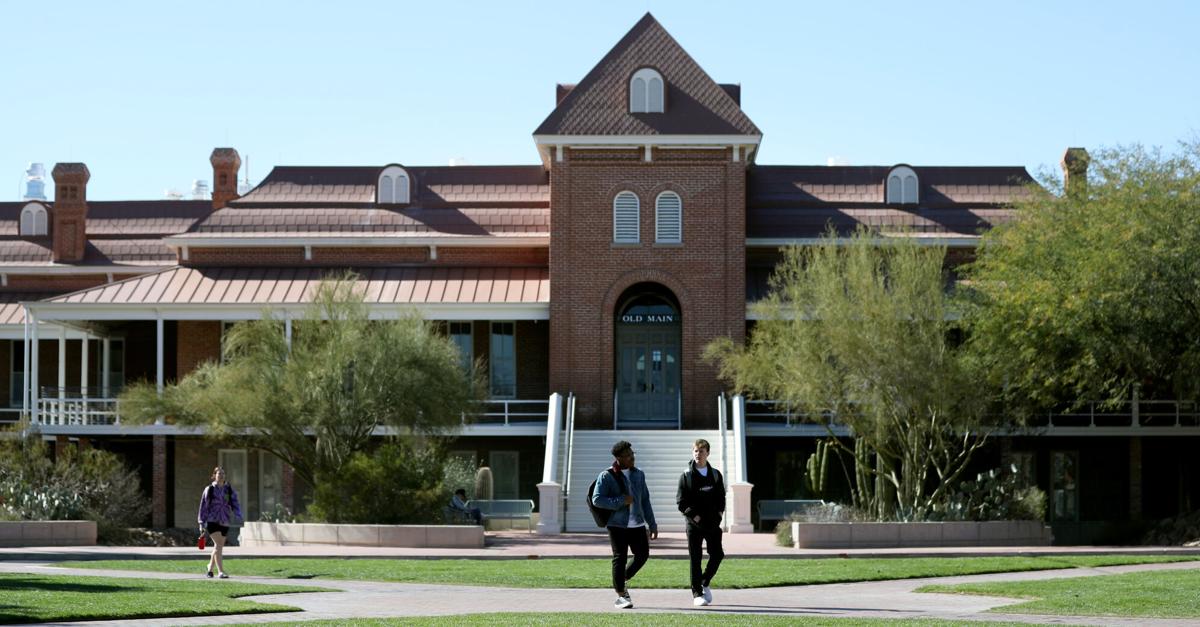The University of Arizona is in the process of gaining accreditation from a new agency, the Western Association of Schools and Colleges Senior College & University Commission.
Commission representatives are expected to visit the campus in Tucson between Jan. 17-20. After that, WSCUC will consider the UA’s application for approval, likely at its scheduled meeting in February.
Since 1917, the UA has been accredited by the Higher Learning Commission, which also oversees the accreditation of Pima Community College, Arizona State University and Northern Arizona University.
The HLC reaffirmed the UA’s accreditation during the 2020-21 academic year, and doesn’t have another comprehensive review scheduled until 2030. However, the UA’s acquisition of Ashford University, a troubled for-profit online college, in 2020 first exposed the UA to WSCUC, the accrediting agency it’s now in the process of applying to.
WSCUC accredits more than 200 colleges and universities, including all of the institutions in the University of California System.
When the UA purchased Ashford, the online school’s accreditor, WSCUC, had already issued a notice of concern about low completion and retention rates, among other issues. Early last year, after the UA rebranded the school as the nonprofit University of Arizona Global Campus, the UA announced plans to fully integrate the roughly 28,000 students then enrolled at UA Global Campus into its operation.
Soon after that announcement, WSCUC issued a report that acknowledged some improvements at UAGC. Nonetheless, it continued the notice of concern until 2023, at which point it will reevaluate the school’s issues.
Last month, the U.S. Department of Education approved the UA’s request to switch accreditors, which has allowed the school to move forward with its application to WSCUC.
The same week, the Arizona Board of Regents approved $75,000 in incentives for UA President Robert Robbins — who has faced internal and external criticism for the UAGC deal — if he improves student outcomes and brings UAGC under the full oversight of the UA by June 2023.
The UA has not widely publicized its intention to switch accreditors.
But when the Arizona Daily Star asked how its involvement with UAGC influenced its decision to seek a new accreditor, a spokesperson directed the newspaper to a webpage answering frequently asked questions about the move.
“Through its affiliation with UAGC (accredited by WSCUC), UArizona has experienced firsthand WSCUC’s collaborative and thorough approach to accreditation and working with its accredited institutions to address concerns and pursue innovative opportunities,” the website reads.
It goes on to explain, “After initial discussions with HLC about UArizona’s innovative and access-expanding strategy to acquire UAGC, and related discussions with WSCUC about the support and guidance they provide as its institutions seek new and more effective and efficient ways to serve their students, communities, and the nation,” the UA determined “the best course of action for UArizona is to change accreditors from HLC to WSCUC.”
The webpage about the accreditation process also states that “A diverse group of campus colleagues, including shared governance faculty, have supported the effort.”
While Arizona law requires shared governance with faculty in developing university policy, numerous faculty members have criticized the UA administration for not adequately involving them in decision-making over the years, including the UAGC deal.
“All I can do is express a hope that we will have meaningful, transparent and deep conversations (when WSCUC visits),” said Leila Hudson, chair of the faculty. “Not only about the things that are going well at the university, but also very serious concerns from faculty and others about shared governance.”
UA Provost Liesl Folks said in a statement, “We expect the transition process to be entirely seamless for current students. WSCUC’s focus on equity and inclusion and on evidence and improvement will provide incentives for University of Arizona to continue to improve in these areas. The WSCUC expectations for the use of data and analysis related to student outcomes will encourage program improvement.”
It was a wet morning in Tucson, with snow reported in Oracle and on Mount Lemmon. This time lapse shows the rain clouds coming in over the Catalina Mountains. Courtesy University of Arizona Department of Hydrology and Atmospheric Sciences.





